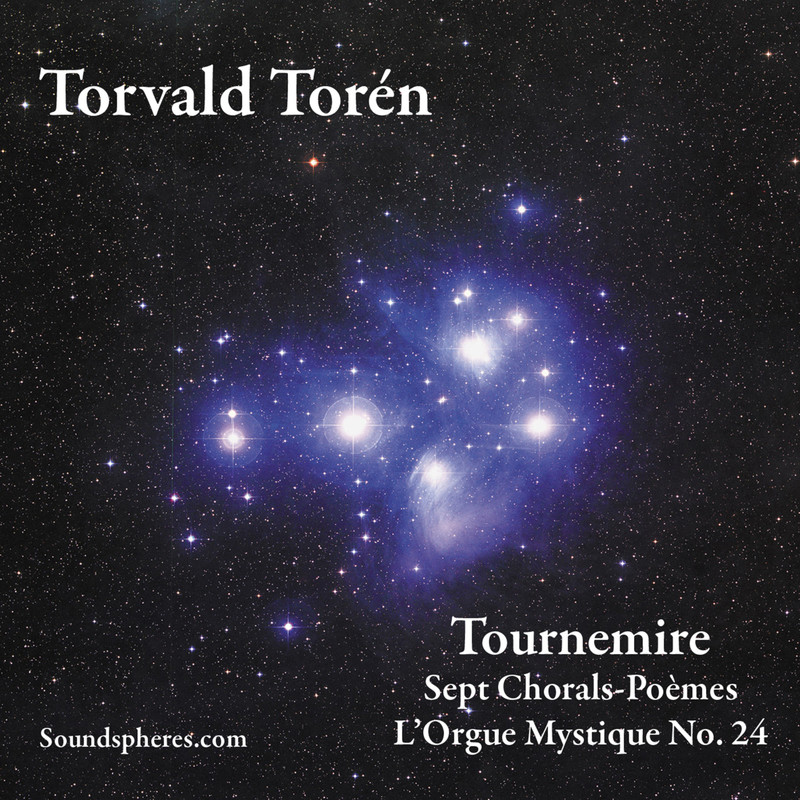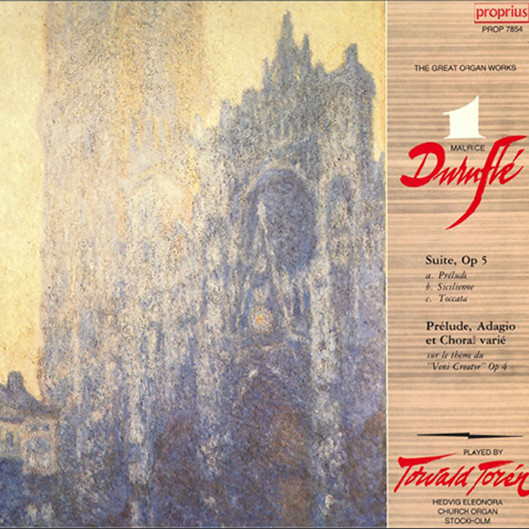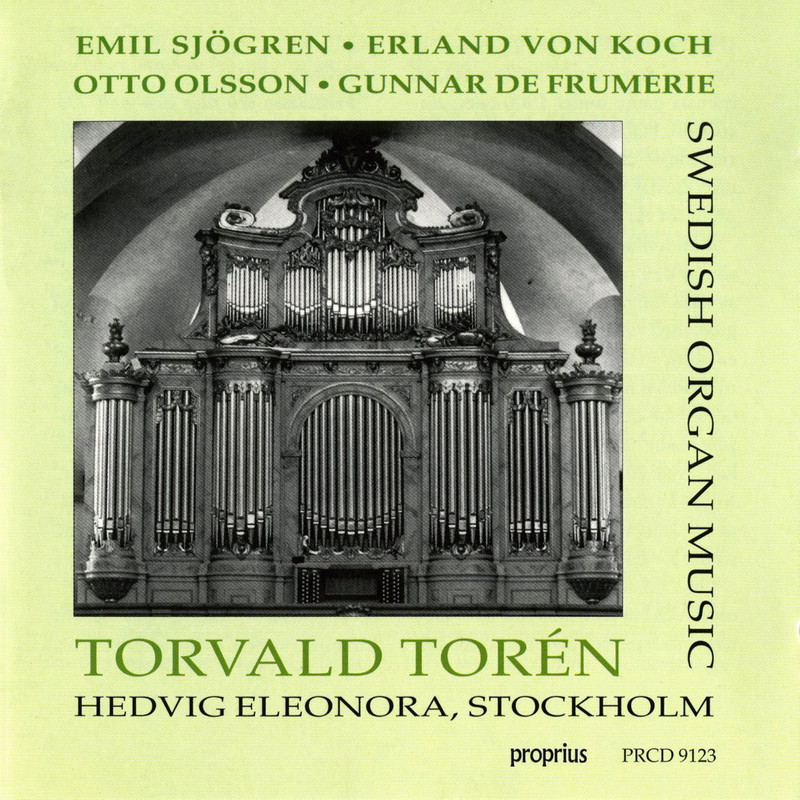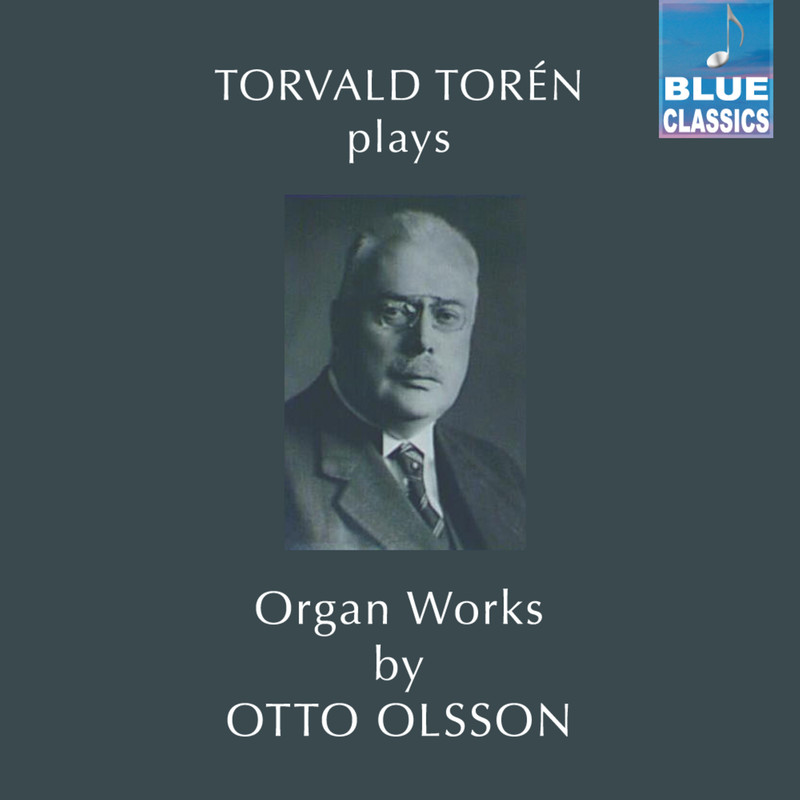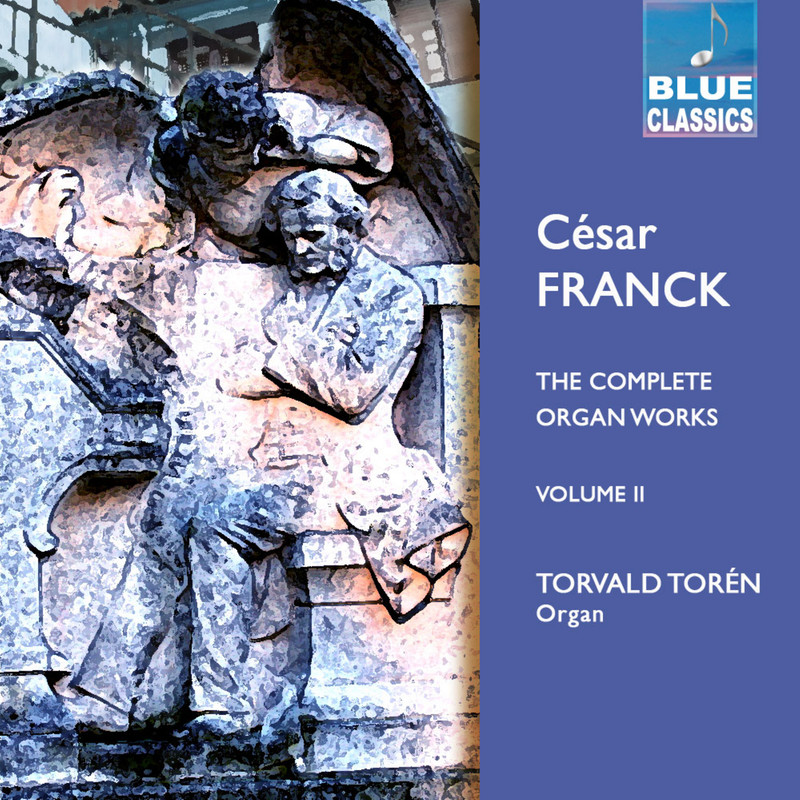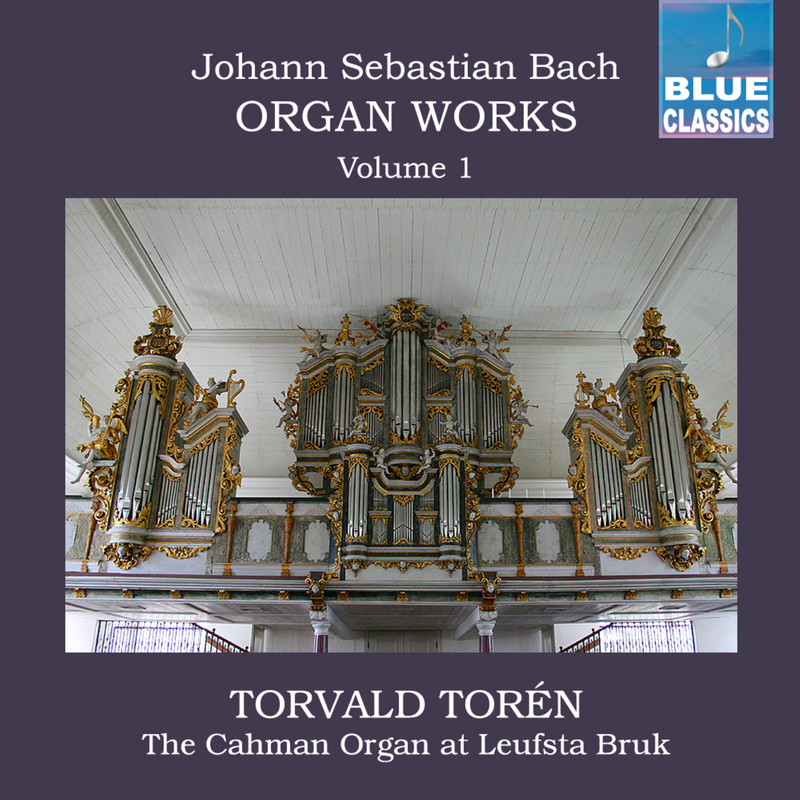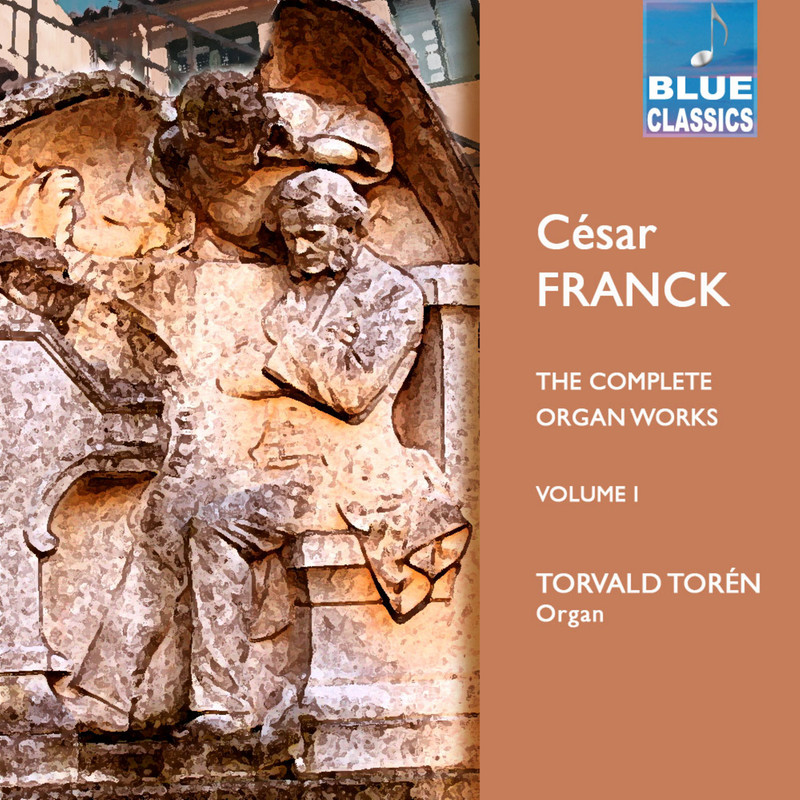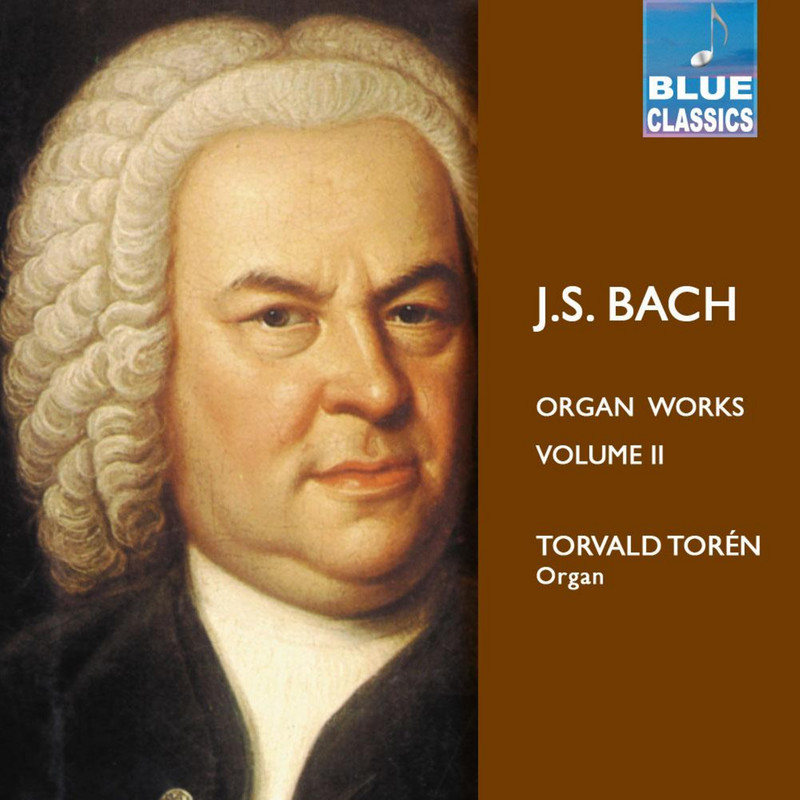
Organ Works by Maurice Duruflé
Torvald Toren
2011-06-01
专辑简介
This album contains four major organ works by Maurice Duruflé, from a 1977 live concert at Hedvig Eleonora Church in Stockholm. Organist Torvald Torén spent a great part of his career on French organ music, which also gained him international praise. He studied with Maurice Duruflé in Paris and had a unique opportunity to study these works with the composer himself.
Maurice Duruflé has, among other things, said the following about Torvald Torén: "Torvald Torén possesses an outstanding technique, and his interpretations are recognized by the highest level of musicality."
Torvald Torén (1945-2001) was one of the most notable Swedish organists of his time. He performed a vast amount organ repertoire, and was considered as one of the foremost interpreters of French romantic-symphonic organ music. Torén studied at the Royal College of Music in Stockholm; piano with Stina Sundell, and organ with Gotthard Arnér. Torén received a Soloist Post-Graduate Degree in both instruments. He continued his organ studies with Maurice Duruflé, Jean Langlais and Flor Peeters. Torvald Torén was the organist of Hedvig Eleonora Church in Stockholm from 1966 until his death in 2001. Additionally he served as a professor in organ at the Royal College of Music from 1983 to 2001. Torvald Torén gave recitals internationally at the most prestigious venues. He was also a sought-after lecturer and a member of several international organ competitions. Torvald Torén made numerous radio broadcasting recordings and some twenty records, for exemple the Trio Sonatas of Bach, the complete organ works of Franck and Duruflé, and the six symphonies of Vierne. He received the Swedish gramophone prize in 1982 and 1984. Torén was elected as a member of the Swedish Royal Academy of Music in 1993. The legendary film director Ingmar Bergman was a long-time admirer of the art of Torvald Torén. A Bach recording with Torvald Torén from Leufsta bruk is featured in the last Bergman movie, Saraband. In John Irving's novel Until I find you Torén is one mentioned as a character.
Maurice Duruflé (11 January 1902 - 16 June 1986) was a French composer, organist, and pedagogue. Duruflé was born in Louviers, Eure.
In 1912, he became chorister at the Rouen Cathedral Choir School, where he studied piano and organ with Jules Haelling. At age 17, upon moving to Paris, he took private organ lessons with Charles Tournemire, whom he assisted at Basilique Ste-Clotilde, Paris until 1927. In 1920 Duruflé entered the Conservatoire de Paris, eventually graduating with first prizes in organ, harmony, piano accompaniment, and composition. His harmony professor was Jean Gallon.
In 1927, Louis Vierne nominated him as his assistant at Notre-Dame. Duruflé became titular organist of St-étienne-du-Mont in Paris in 1929, a position he held for the rest of his life. In 1936, he won the Prix Blumenthal. In 1939, he premiered Francis Poulenc's Organ Concerto (the Concerto for Organ, Strings and Timpani in G minor); he had advised Poulenc on the registrations of the organ part. In 1943 he became Professor of Harmony at the Conservatoire de Paris, where he worked until 1970. In 1947, Duruflé wrote what is probably the most famous of his few pieces: the Requiem op. 9, for soloists, choir, organ, and orchestra. The same year, Marie-Madeleine Chevalier became his assistant at St-étienne-du-Mont. They married on 15 September 1953. (Duruflé's first marriage to Lucette Bousquet, contracted in 1932, ended in civil divorce in 1947 and was declared null by the Vatican on 23 June 1953.) The couple became a famous and popular organ duo, going on tour together several times throughout the sixties and early seventies.
Duruflé suffered severe injuries in a car accident on 29 May 1975, and as a result he gave up performing; indeed he was largely confined to his apartment, leaving the service at St-étienne-du-Mont to his wife Marie-Madeleine (who was also injured in the accident). He died in Louveciennes (near Paris) in 1986, aged 84.
Duruflé was highly critical of his own composition. He only published a handful of works and often continued to edit and change pieces after publication. For instance, the Toccata from Suite, op. 5 has a completely different ending in the first edition than in the more recent version, and the score to the Fugue sur le nom d'Alain originally indicated accelerando throughout. The result of this perfectionism is that his music, especially his organ music, holds a very high position in the repertoire.
专辑曲目
1
Prélude, Adagio et Choral varié sur le theme du Veni Creator, op. 4 - Prélude
Torvald Toren
2
Prélude, Adagio et Choral varié sur le theme du Veni Creator, op. 4 - Adagio
Torvald Toren
3
Prélude, Adagio et Choral varié sur le theme du Veni Creator, op. 4 - Choral varié
Torvald Toren
4
Prélude et Fugue sur le nom d’Alain, op. 7 - Prélude
Torvald Toren
5
Prélude et Fugue sur le nom d’Alain, op. 7 - Fugue
Torvald Toren
6
op. 2 - Scherzo
Torvald Toren
7
Suite, op. 5 - Prélude
Torvald Toren
8
Suite, op. 5 - Sicilienne
Torvald Toren
9
